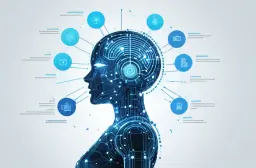AI in Transportation: Revolutionizing Mobility
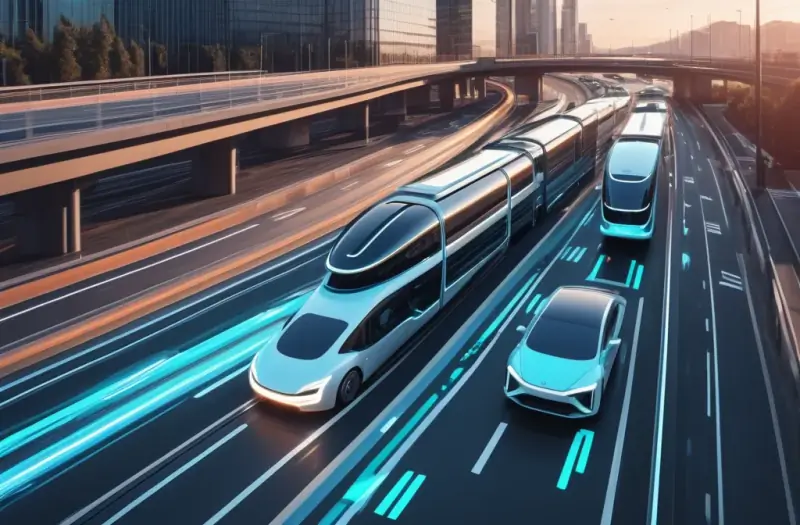
Table of Contents
The advent of artificial intelligence (AI) has undoubtedly sparked a revolution across numerous sectors, and transportation is no exception. From enhancing logistical efficiency to transforming the way we travel, AI in transportation is reshaping our mobility landscape in ways previously thought unimaginable. As we delve into the intersection of AI and transportation, we’ll uncover how these advancements are revolutionizing the future of mobility.
Introduction to AI in Transportation
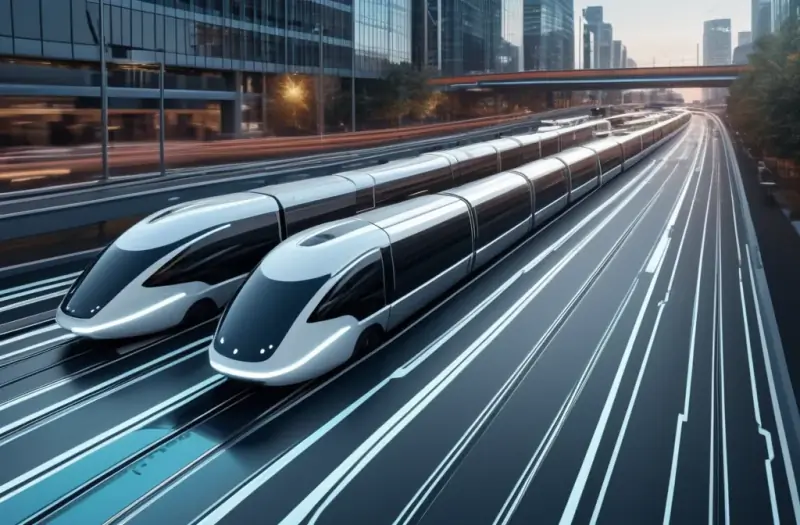
Artificial intelligence in transportation is not just a buzzword; it’s a fundamental shift in how we approach travel and logistics. In recent years, we’ve witnessed an explosion of innovations driven by AI, making transportation more efficient, safer, and environmentally friendly. From autonomous vehicles to intelligent transportation systems, AI is the backbone of modern transportation solutions.
One of the most exciting aspects of AI’s role in transportation is its ability to learn and adapt. By leveraging machine learning in transport, systems can analyze vast amounts of data to make real-time decisions, optimize routes, and enhance overall performance. This evolution is set to redefine our daily commutes, freight logistics, and urban mobility.
The Role of AI in Enhancing Logistics
AI-Driven Transit Solutions
Intelligent transportation systems (ITS) are at the forefront of AI’s impact on logistics. By integrating advanced transportation AI, these systems provide real-time updates and dynamic route adjustments, significantly reducing travel times and increasing efficiency. Here’s how AI-driven transit solutions are making a difference:
- Predictive Analytics in Transportation: AI algorithms analyze traffic patterns, weather conditions, and historical data to predict and manage traffic flow, minimizing congestion and improving travel times.
- Automated Transportation Technologies: Autonomous vehicles, powered by neural networks in transportation, are transforming freight and passenger transport by reducing human error and increasing safety.
- AI-Enhanced Transportation Management: With the help of cognitive computing in logistics, fleet management is becoming more sophisticated, enabling better route planning, fuel efficiency, and maintenance scheduling.
Impact on Freight and Supply Chains
The integration of AI in logistics extends beyond passenger transport to include freight and supply chains. AI-powered systems are streamlining operations and enhancing efficiency. Some key benefits include:
- Optimized Inventory Management: AI in mobility helps businesses forecast demand and manage inventory more effectively, reducing costs and minimizing waste.
- Real-Time Tracking: Smart transport solutions provide real-time tracking of goods, allowing for better coordination and faster response to delays or disruptions.
- Enhanced Safety: Advanced AI technologies monitor and analyze data from various sensors to ensure the safety of goods during transit and prevent accidents.
Autonomous Vehicles: The Future of Mobility
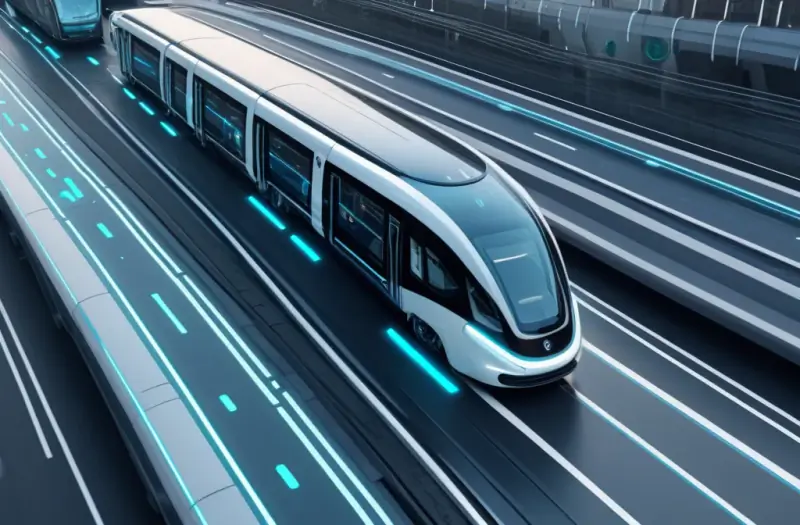
The Evolution of Autonomous Vehicles
Autonomous vehicles are perhaps the most talked-about application of AI in transportation. These vehicles use a combination of sensors, cameras, and AI algorithms to navigate and operate without human intervention. The journey to fully autonomous vehicles has been marked by several key milestones:
- Early Prototypes: Initial models demonstrated basic autonomous capabilities, such as lane-keeping and adaptive cruise control.
- Advancements in Technology: With the integration of neural networks in transportation, current models can handle complex driving environments, including city traffic and unpredictable conditions.
- Regulatory and Safety Considerations: As technology advances, regulatory frameworks and safety protocols are evolving to ensure the safe integration of autonomous vehicles into our transportation systems.
Benefits of Autonomous Vehicles
The potential benefits of autonomous vehicles are immense. They include:
- Increased Safety: By eliminating human error, autonomous vehicles can significantly reduce accidents and fatalities.
- Improved Traffic Flow: Autonomous vehicles can communicate with each other to optimize traffic flow and reduce congestion.
- Enhanced Accessibility: These vehicles can provide greater mobility for individuals who are unable to drive due to age or disability.
Intelligent Transportation Systems: A New Era
Integration of AI in Urban Transportation
Intelligent transportation systems (ITS) are transforming urban mobility by integrating AI to create smarter cities. These systems use AI to manage and optimize various aspects of urban transport, including:
- Traffic Management: AI-driven solutions help manage traffic signals and adjust them based on real-time traffic conditions, reducing delays and improving flow.
- Public Transit Optimization: AI enhances the efficiency of public transit systems by optimizing routes, schedules, and capacity planning.
- Smart Parking Solutions: AI-powered parking systems provide real-time information about available parking spaces, reducing the time spent searching for parking and lowering emissions.
Enhancing Public Transit with AI
Public transit systems are benefiting greatly from AI advancements. Here’s how:
- Real-Time Updates: AI provides passengers with real-time information on bus and train schedules, delays, and route changes.
- Demand Forecasting: Machine learning in transport helps predict passenger demand, allowing for better resource allocation and service planning.
- Personalized Experiences: AI-driven apps offer personalized travel recommendations based on user preferences and travel history.
Challenges and Future Prospects
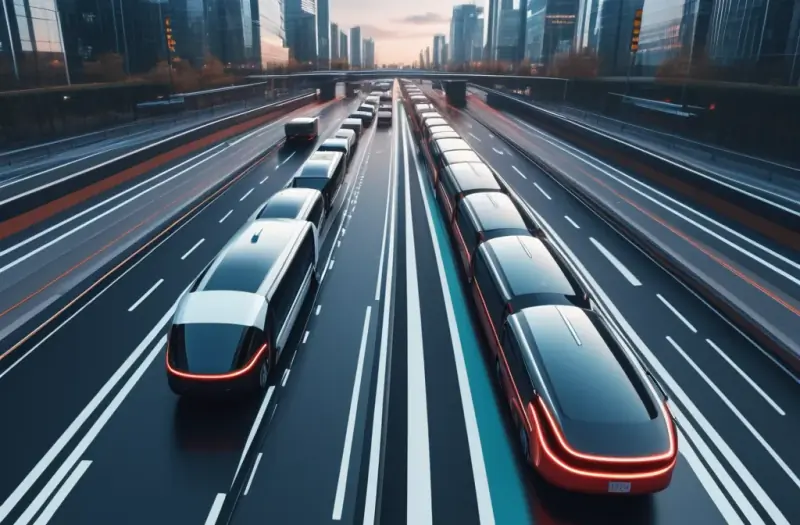
Addressing Ethical and Privacy Concerns
As AI becomes more integrated into transportation, addressing ethical and privacy concerns is crucial. Key issues include:
- Data Security: Ensuring that personal and travel data is protected from breaches and misuse.
- Bias and Fairness: Developing algorithms that are fair and unbiased, avoiding discrimination in transportation services.
- Autonomous Vehicle Ethics: Establishing ethical guidelines for autonomous vehicles to handle emergency situations and decision-making processes.
The Future of AI in Transportation
Looking ahead, the future of AI in transportation is promising. Emerging technologies and continued advancements in AI are expected to bring about:
- Seamless Integration: Greater integration of AI across all modes of transportation, creating a more cohesive and efficient mobility ecosystem.
- Sustainable Solutions: AI will play a key role in developing environmentally friendly transportation solutions, such as electric and autonomous vehicles.
- Enhanced Connectivity: Improved connectivity and communication between vehicles, infrastructure, and users, leading to smarter and more responsive transportation systems.
FAQs
What is the role of AI in transportation?
AI in transportation enhances efficiency, safety, and reliability by using data-driven insights and automation. It enables innovations such as autonomous vehicles, intelligent transportation systems, and predictive analytics.
How does AI improve logistics and supply chains?
AI improves logistics by optimizing inventory management, providing real-time tracking of goods, and enhancing safety through predictive maintenance and analytics.
What are the benefits of autonomous vehicles?
Autonomous vehicles offer increased safety, improved traffic flow, and enhanced accessibility for individuals who cannot drive.
What are intelligent transportation systems?
Intelligent transportation systems use AI to manage and optimize urban transportation, including traffic management, public transit, and smart parking solutions.
What challenges does AI face in transportation?
AI in transportation faces challenges related to data security, ethical considerations, and ensuring unbiased and fair algorithms.
Conclusion
The integration of AI into transportation is not merely a trend but a transformative force that is reshaping how we move and manage logistics. From the development of autonomous vehicles to the implementation of intelligent transportation systems, AI is driving advancements that promise to make our transportation networks smarter, safer, and more efficient. As we continue to embrace these innovations, the future of mobility looks increasingly promising.
Key Takeaways
- AI is revolutionizing transportation by enhancing efficiency, safety, and user experience.
- Autonomous vehicles are a major advancement, offering significant benefits in terms of safety and traffic management.
- Intelligent transportation systems are transforming urban mobility with real-time updates and improved public transit.
- Challenges such as data security and ethical concerns need to be addressed to fully realize the potential of AI in transportation.
Embracing these changes, we are not only stepping into a new era of mobility but also paving the way for a more connected and intelligent transportation future.
Popular Tags
ADS SPACE HERE

